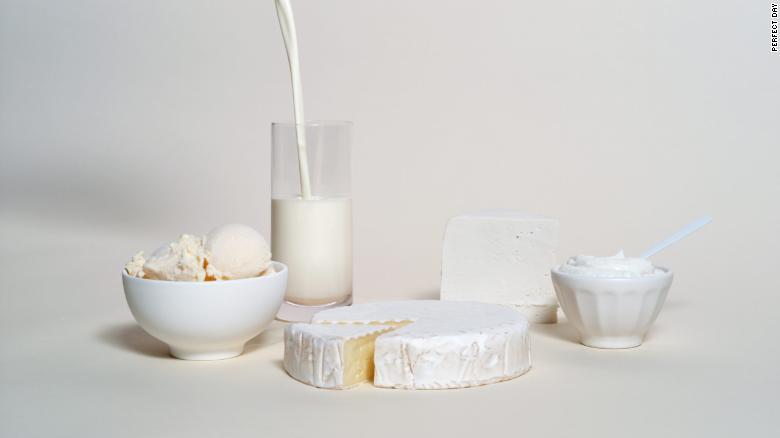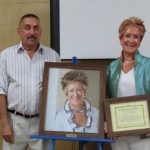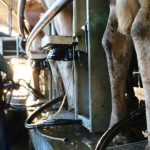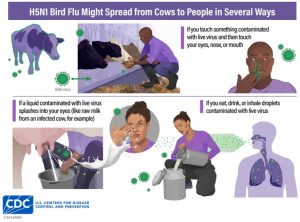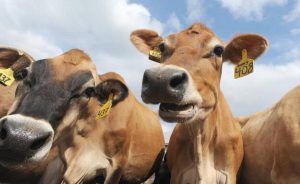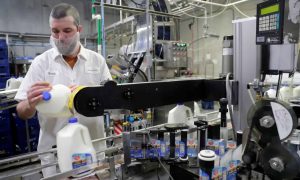
California-based Perfect Day uses fungi to make dairy protein that is “molecularly identical” to the protein in cow’s milk, says co-founder Ryan Pandya. That means it can be used to make dairy products such as cheese and yogurt.
“We were interested in the question of what is in milk … that gives it incredible versatility and nutrition that is somehow missing from the plant-based milks,” says Pandya.
Perfect Day has assembled the gene that codes for whey protein in cow’s milk, and introduced it into a fungus. When the fungus is grown in fermentation tanks, it produces whey protein, which is then filtered and dried into a powder used in products including cheese and ice cream — which are already on the shelves in the United States and Hong Kong.
Fermented fungi
Although Perfect Day’s protein contains no lactose, hormones or cholesterol, it isn’t suitable for people with a dairy allergy. But as the process involves no animals, Pandya describes the product as “vegan-friendly.”
It’s also good for the environment. By removing cows from the equation, the production of milk is “dramatically more efficient,” says Pandya, producing up to 97% fewer greenhouse gas emissions than conventional dairy.
In 2020, Perfect Day launched Brave Robot ice cream with The Urgent Company, and partnered with ice cream brands N!ck’s and Graeter’s to make its products available in 5,000 stores across the United States.
The company is already reaching an international market, with its protein used in Hong Kong’s Ice Age ice creams, which taste similar to regular supermarket brands — and unlike some plant-based dairy alternatives, there’s no taste of coconut, banana, or other base flavors.
The next product in development is cream cheese, due to be released later in 2021, says Pandya.
A rapidly growing market
Perfect Day isn’t the only company looking to science for sustainable dairy solutions. California startup New Culture is also developing cheese products without cows through a fermentation process, and TurtleTree Labs is creating milk — including human milk — from cultured cells.
According to figures from the Good Food Institute — a nonprofit that aims to boost innovation in alternative proteins — $590 million was invested in fermented alternative proteins in 2020, and $300 million of that went to Perfect Day.

Plant-based milk accounted for 15% of US milk sales in 2020 and is expected to grow, says Mirte Gosker, acting managing director of the Good Food Institute in Asia Pacific.
One challenge for companies is getting regulatory approval, and another is the higher price of innovative products, says Gosker. Perfect Day’s ice cream retails for about the same as high-end brands like Häagen-Dazs or Ben & Jerry’s.
Many countries are eager to develop food-tech innovation. Singapore, where Perfect Day recently established a research and development lab with a government-backed agency, is “leading the way with its regulatory framework,” Gosker says. Support from “governments has a big role to play here, to invest in open-access R&D and in infrastructure,” she adds.
Pandya says the startup is also seeking regulatory approval in Canada, India and Europe, as well as looking for partners in the dairy industry.
“We’re developing the kinder, greener way to make your favorite foods starting in the dairy aisle, and we can’t do that alone,” says Pandya.
